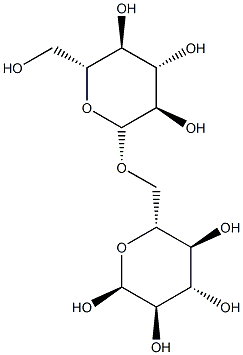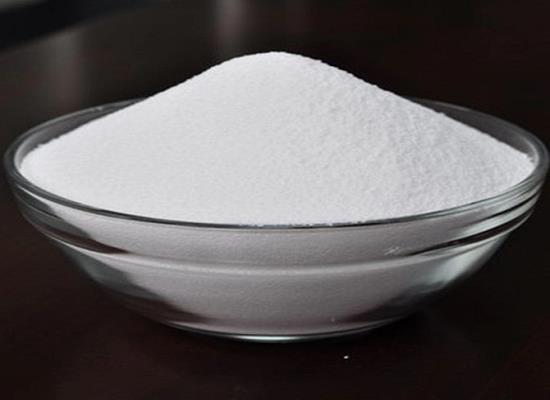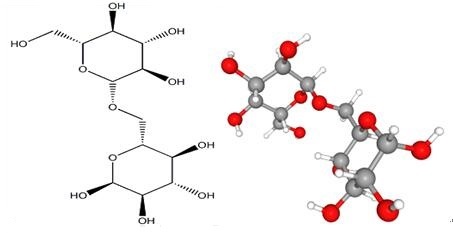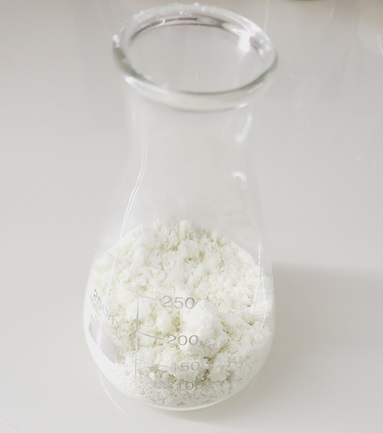Polydextrose: Fermentation and Beneficial Effects
General Description
Polydextrose undergoes slow fermentation in the large intestine, facilitated by a diverse microbiota, as demonstrated through in vitro and in vivo studies. This process yields short-chain fatty acids (SCFAs) and benefits gut health by enhancing mineral absorption, promoting intestinal integrity, and supporting weight management through satiety. Furthermore, Polydextrose consumption may reduce disease risk by modulating gut microbiota, increasing SCFA production, and influencing gene expression related to cancer. The selective degradation of Polydextrose by specific microbes highlights the complex interaction between dietary fibers and gut flora, emphasizing the importance of Polydextrose in a balanced diet for overall health benefits.
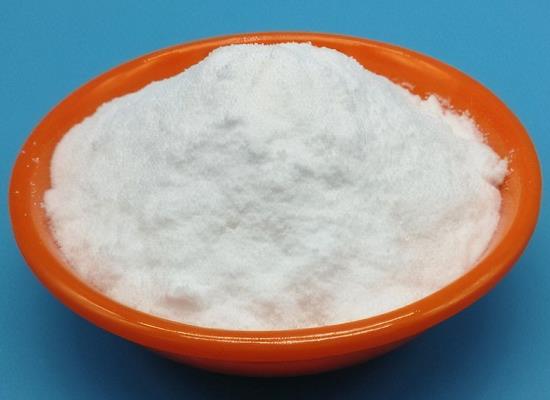
Figure 1. Polydextrose
Fermentation
The fermentation of polydextrose in the large intestine is a complex process that involves a consortium of microbes, as evidenced by several in vitro studies. Unlike simple pure culture studies where polydextrose was found to be hardly fermentable, simulations utilizing complex microbiota have shown that PDX undergoes slow degradation. This degradation results in measurable fermentation products in the fermentation fluids, indicating that a variety of microbes are required to break down the complex structure of polydextrose. Further studies, including colon simulator experiments, have demonstrated the gradual disappearance of PDX from simulated digesta, highlighting its slow fermentation process that extends through different parts of the modeled colon. This observation is consistent with findings from both animal and human studies. For instance, feeding trials with pigs revealed a gradual decrease in PDX levels across different sections of the intestines, with polydextrose still detectable in the distal colon. Similarly, human intervention trials showed the presence of polydextrose in fecal samples post-consumption, confirming the sustained fermentation of polydextrose observed in laboratory and animal experiments also applies to humans, particularly in the distal part of the colon. Moreover, there is significant subject-to-subject variation in the excretion of PDX in feces, suggesting that different gut microbiotas have varying capabilities to degrade PDX. Detailed investigation into the fermentation process revealed a preference among intestinal microbes for branched PDX components and specific glycosidic linkages, indicating that the degradation of polydextrose is not random but rather selective based on the molecular structure of PDX. This selectivity underscores the complexity of polydextrose fermentation and the intricate interactions between dietary polymers and gut microbiota. 1
Beneficial Effects
Polydextrose consumption offers a multitude of health benefits, primarily through its slow and gradual fermentation within the gut. This process leads to the production of SCFAs and alterations in the microbiota composition, which are central to the beneficial effects observed. Enhanced SCFA production, particularly butyrate, acetate, and propionate, following Polydextrose intake, has been linked to improved mineral absorption—namely calcium and magnesium—in postmenopausal rodents and increased bone calcium content. Additionally, iron absorption improvements have been noted in rat studies. The presence of SCFAs in the gastrointestinal tract contributes to various health benefits. These include alleviating constipation, inhibiting the growth of pathogenic microorganisms, influencing cholesterol synthesis in the liver, and promoting colonic mucosa integrity through nutrition provision for colonocytes. Furthermore, Polydextrose consumption has been associated with short-term satiety and reduced energy intake in humans, indicating its potential role in weight management through the modulation of gut hormone release, which affects appetite and insulin release. Beyond gastrointestinal health, Polydextrose's fermentation products may also play a protective role against certain diseases. Epidemiological studies suggest an inverse relationship between fiber intake and the risk of colonic and systemic illnesses, such as some cancers and cardiovascular disease. The protective mechanisms are thought to involve the fermentation of fiber into SCFAs, particularly butyrate, and the reduction in genotoxic compounds in the colon. Moreover, cell culture and animal studies indicate that Polydextrose fermentation can modulate gene expression related to cell cycle, apoptosis, and energy metabolism in colon cancer cells, and decrease the expression of colorectal cancer markers. In conclusion, Polydextrose consumption offers broad health benefits, from improving mineral absorption and gastrointestinal health to potentially reducing the risk of certain diseases through its impact on gut microbiota composition, SCFA production, and modulation of gene expression. These findings underscore the importance of including Polydextrose as part of a balanced diet to promote overall health. 1,2
Reference
1. Röytiö H, Ouwehand AC. The fermentation of polydextrose in the large intestine and its beneficial effects. Benef Microbes. 2014;5(3):305-313.
2. do Carmo MM, Walker JC, Novello D, et al. Polydextrose: Physiological Function, and Effects on Health. Nutrients. 2016;8(9):553.
You may like
Related articles And Qustion
See also
Lastest Price from Polydextrose manufacturers

US $10.00/KG2025-04-21
- CAS:
- 68424-04-4
- Min. Order:
- 1KG
- Purity:
- 99%
- Supply Ability:
- 10 mt

US $99.00-35.00/kg2025-04-15
- CAS:
- 68424-04-4
- Min. Order:
- 1kg
- Purity:
- 99%
- Supply Ability:
- 20ton
